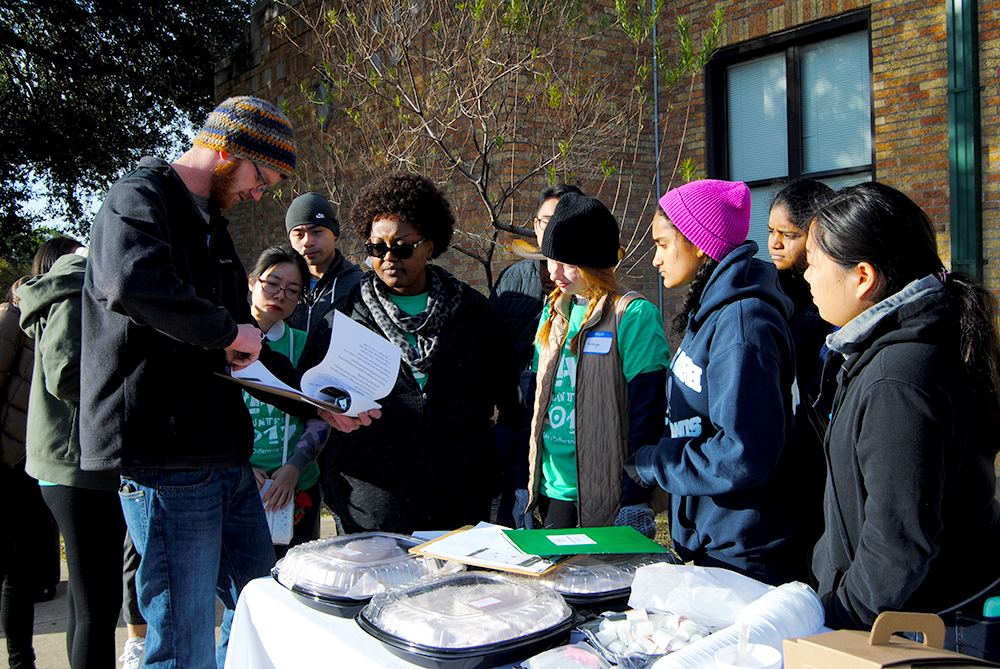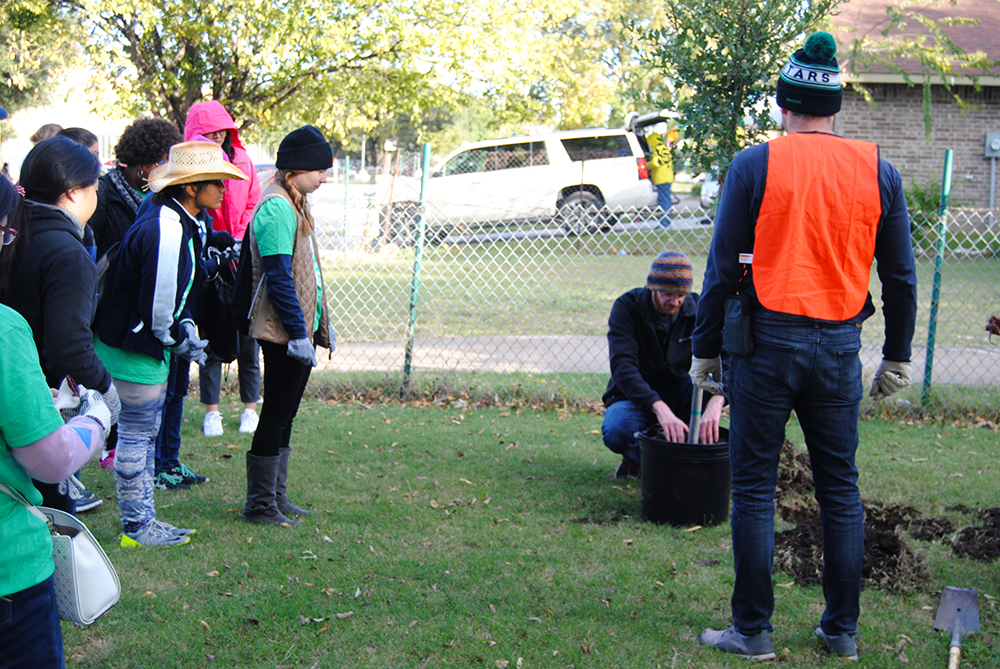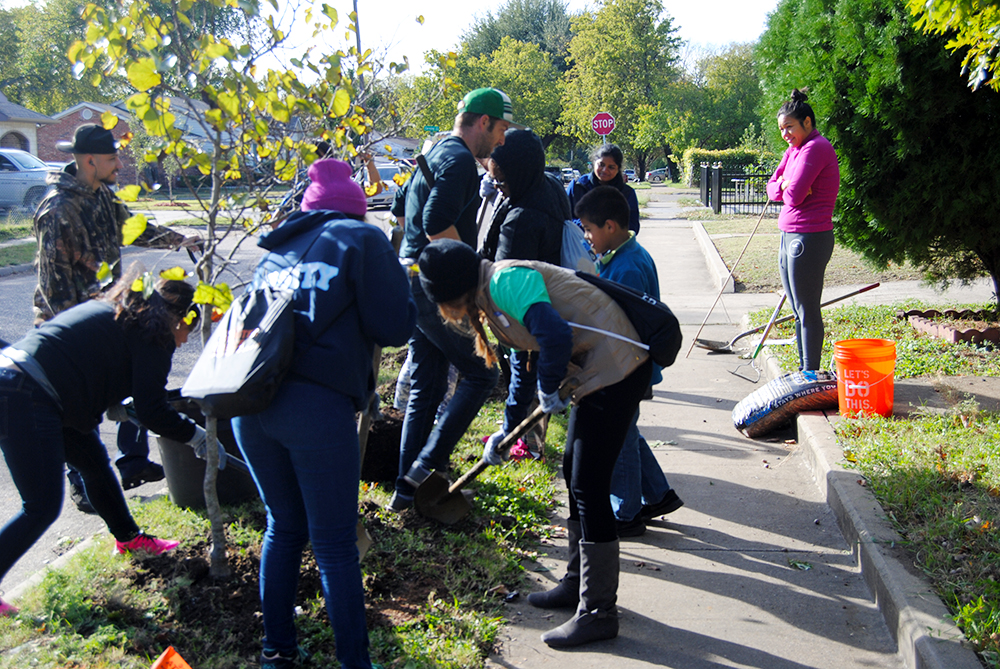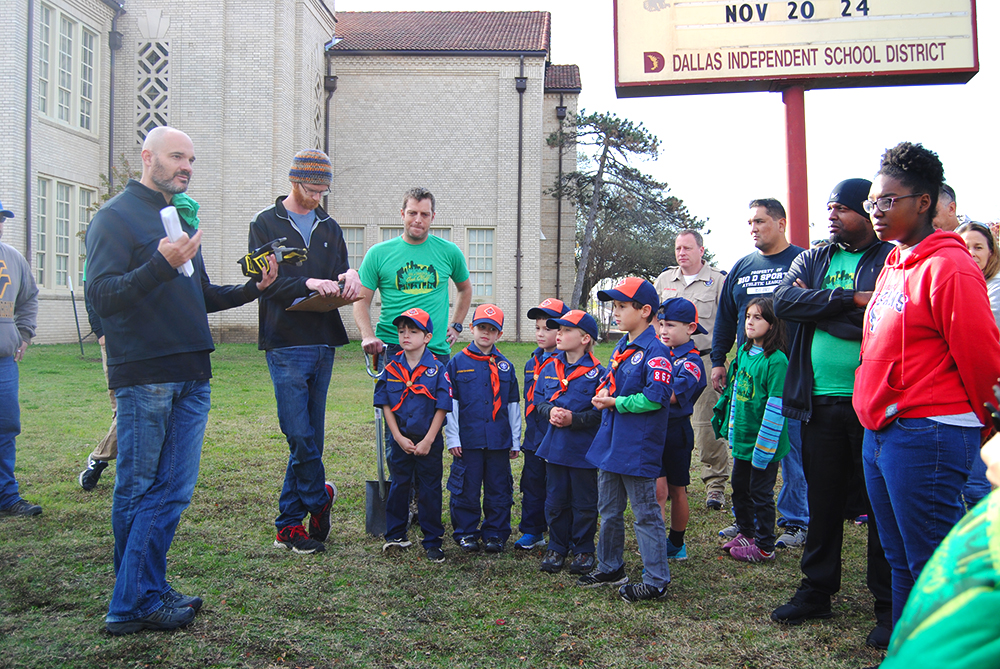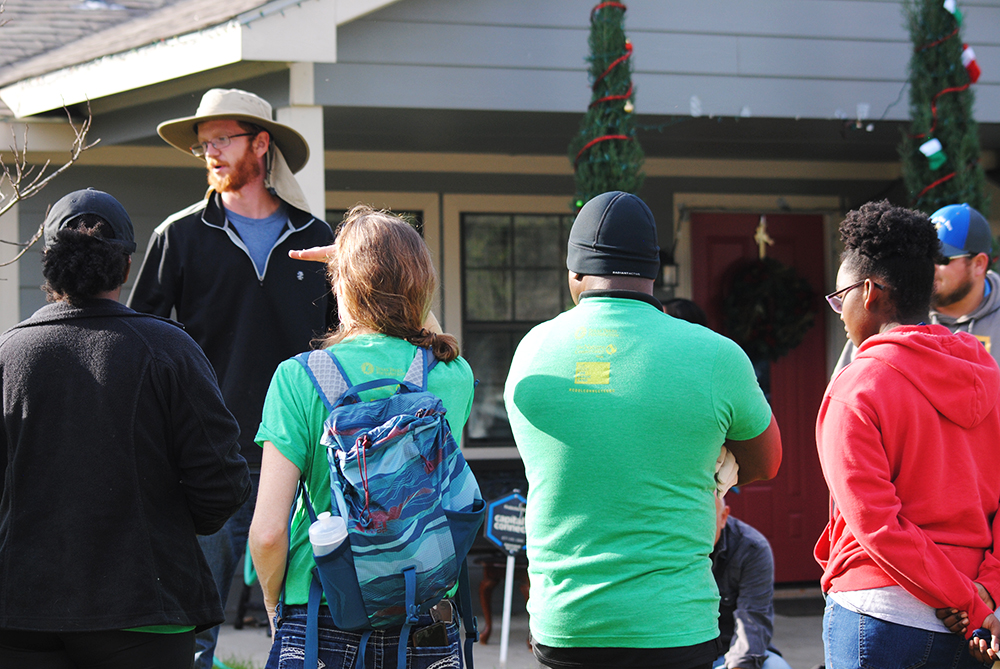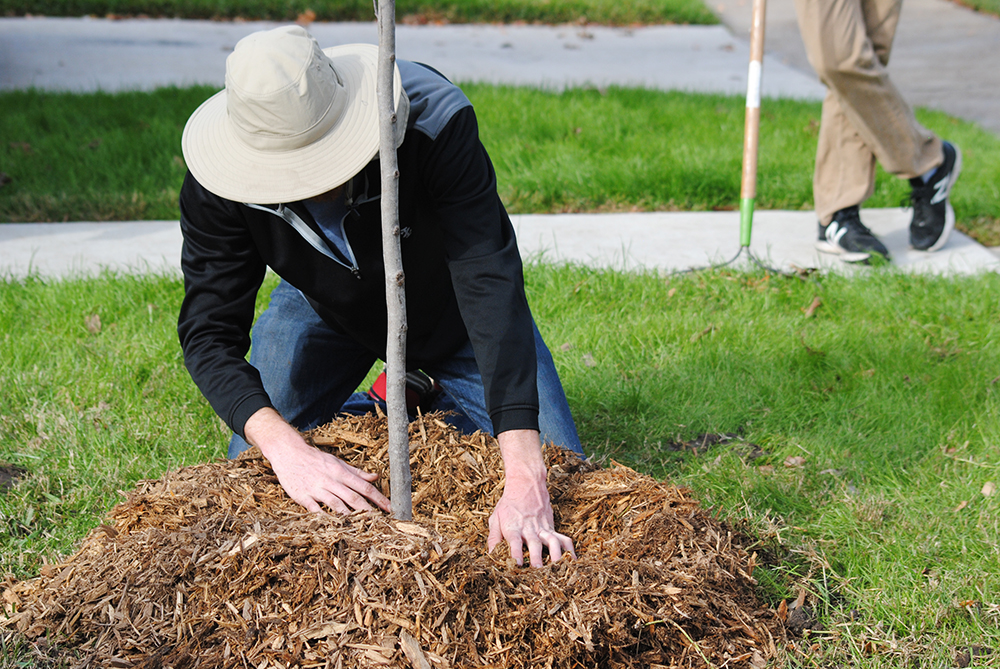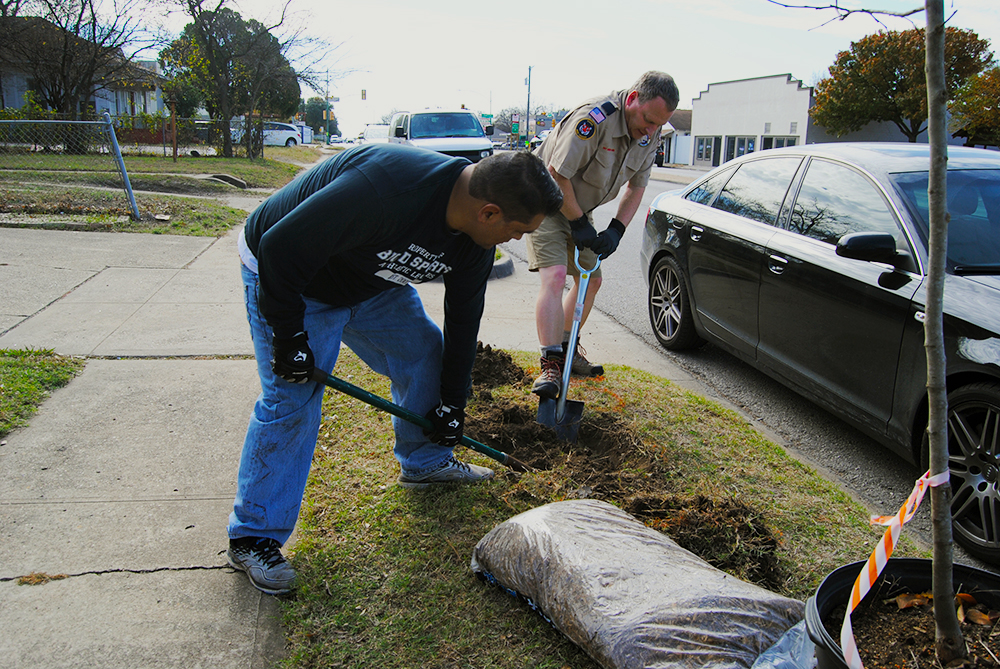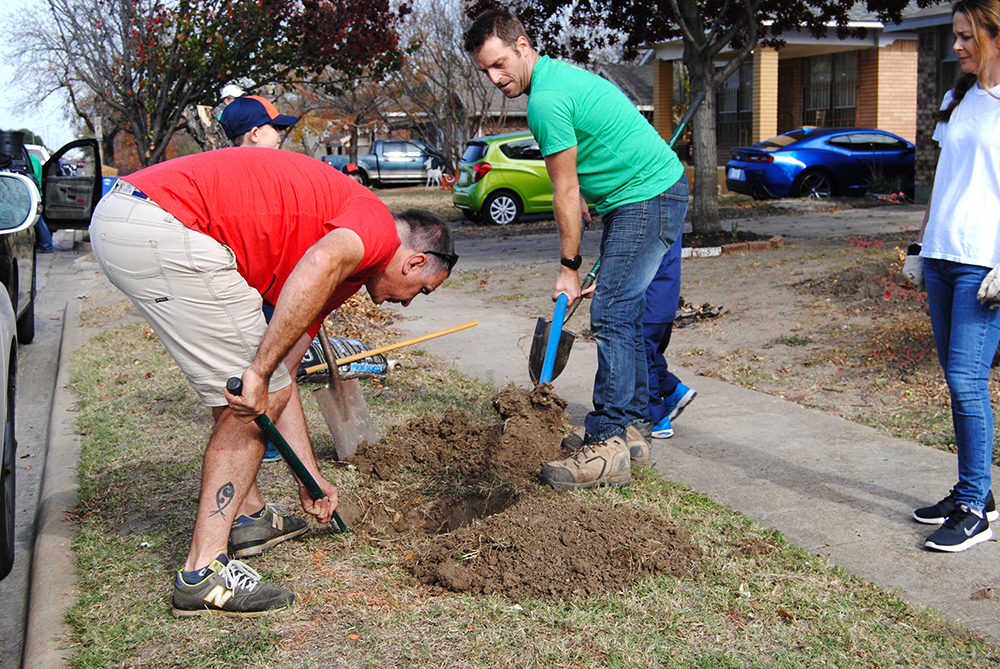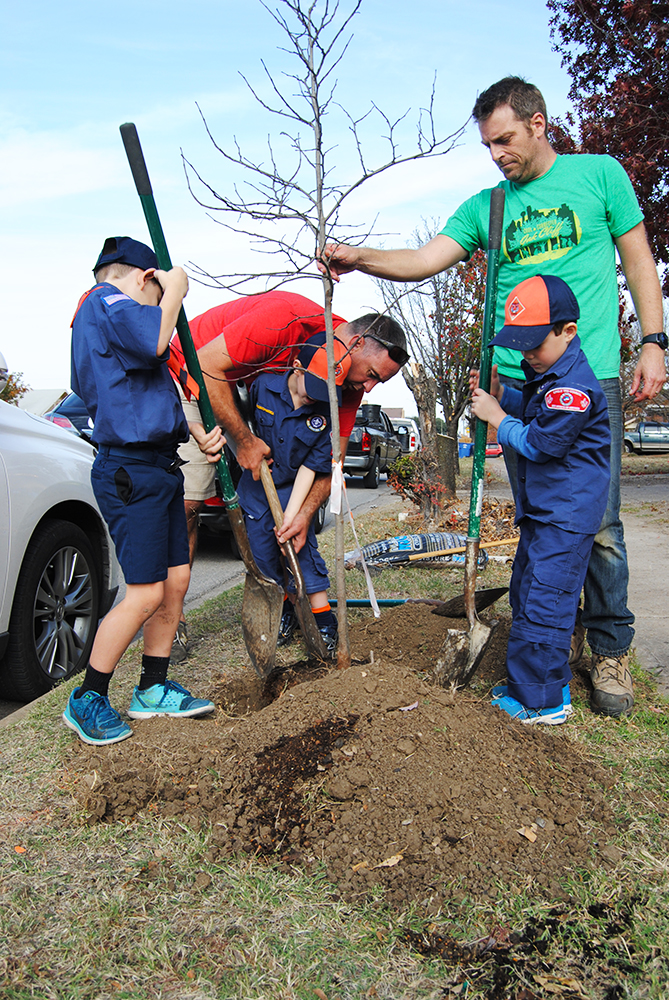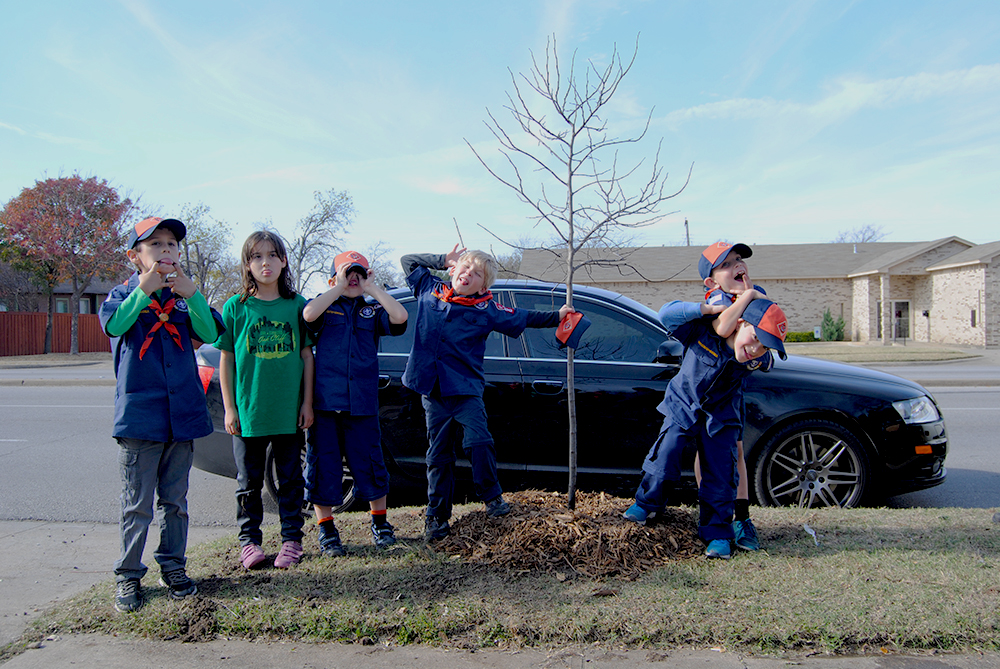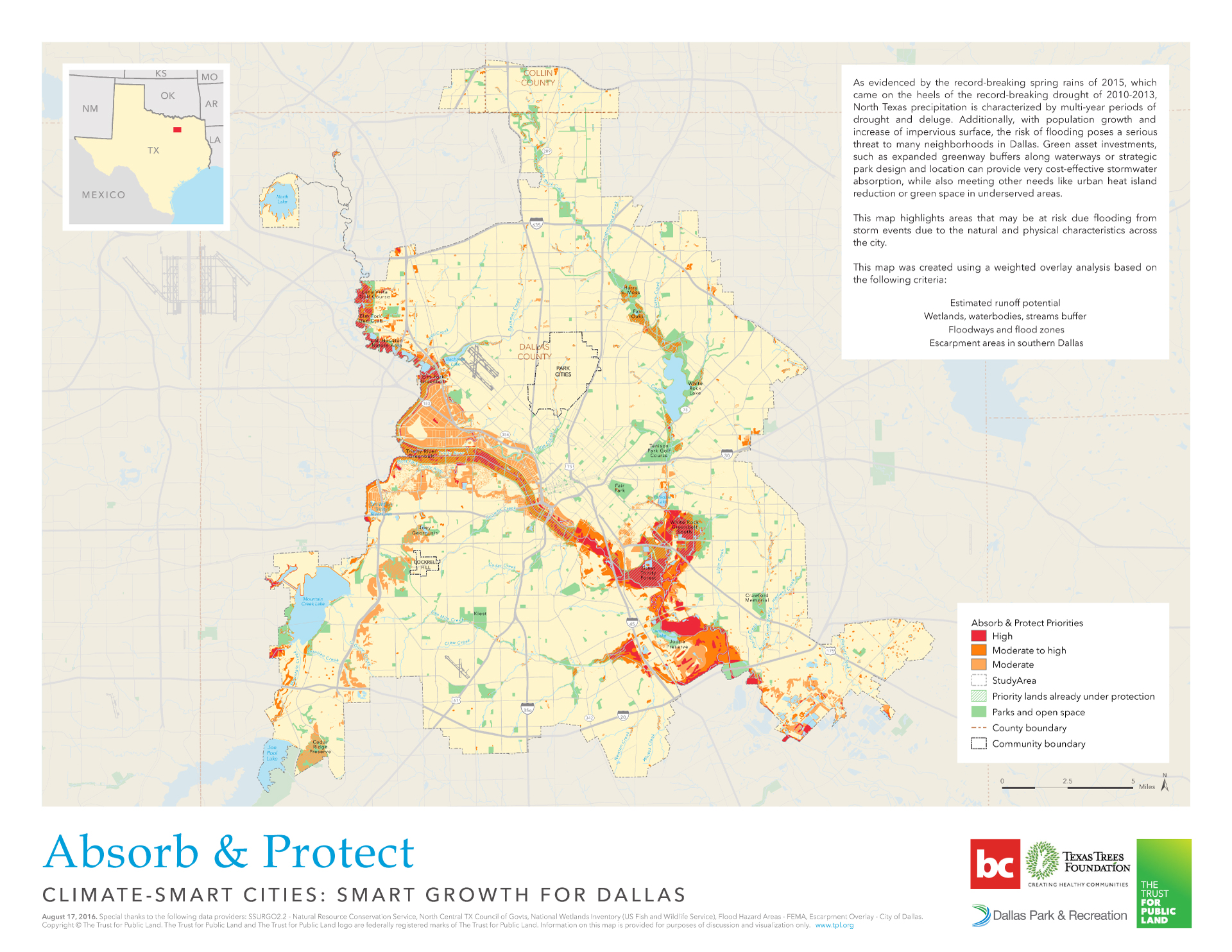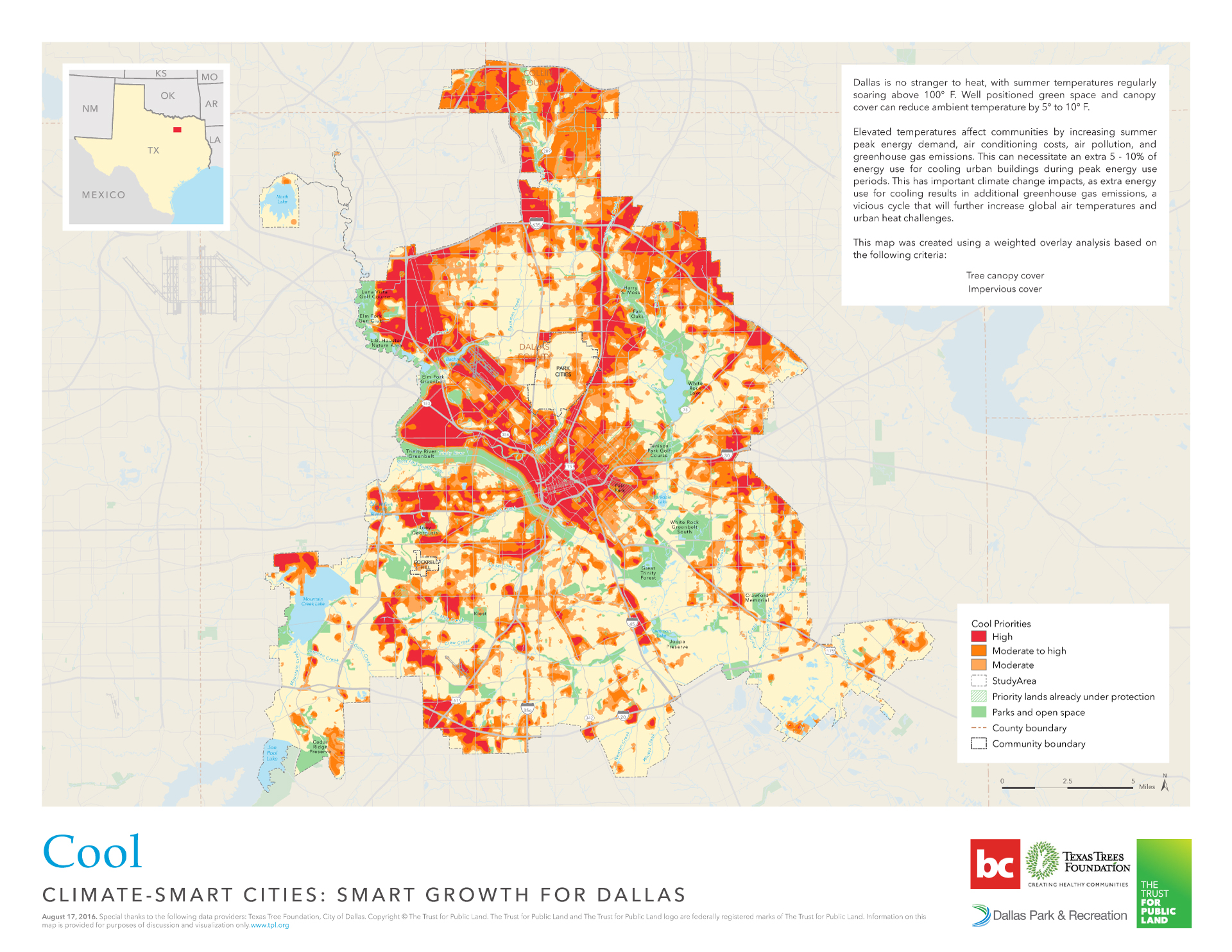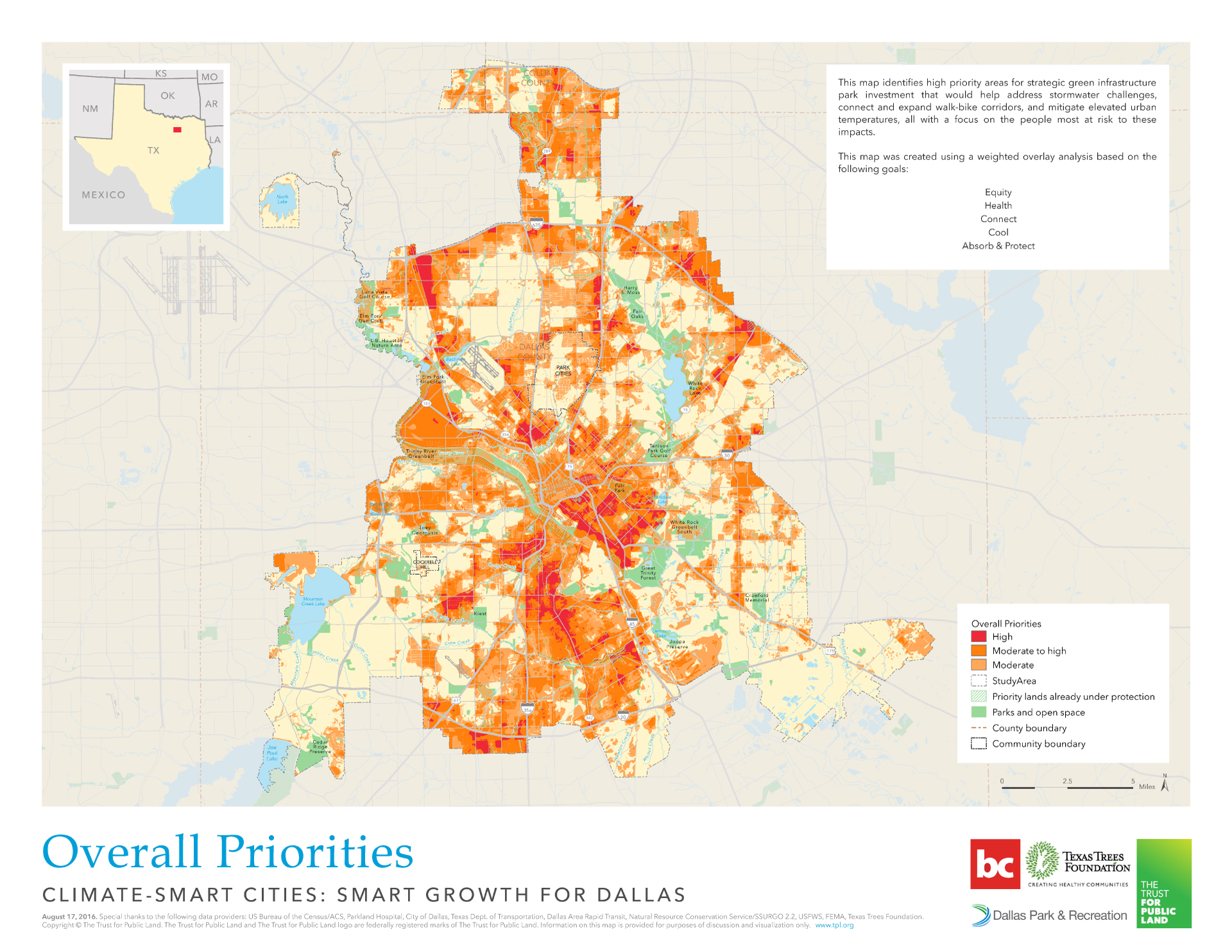Using sophisticated Geographic Information System (GIS) computer modeling, the Smart Growth for Dallas program has created a series of maps that depict areas of Dallas where parks can cool neighborhoods during summertime heat waves, protect homes from floods, improve the health of nearby residents, build equity in underserved neighborhoods, and connect communities to each other. Through analysis of the data, Smart Growth for Dallas has identified dozens of potential locations across the city for building new parks that can provide these benefits.
“From flood protection to connectivity to health, parks provide a multitude of benefits that directly address Dallas’s biggest economic, social, and environmental challenges. Our mapping and data tools are helping Dallas build smarter parks that realize as many of these benefits as possible,” said Robert Kent, North Texas area director for The Trust for Public Land. “Parks are more than just a nice place to spend a sunny Saturday—they are critical for building a city that is resilient to the challenges of the 21st century.”
The results presented at Thursday’s meeting are the first phase of a two-year effort to develop a new set of strategies to guide future investments in parks, open space, and green infrastructure for Dallas. On Nov. 10, we're launching a series of eight community engagement sessions to hear from Dallas residents about what they want from the city’s park system. The sessions will be held throughout the city.
“Decisions about our parks and open space are so much stronger when they are informed by community members,” says Brent Brown, Founding Director of bcWORKSHOP. “Our community engagement sessions are essential to getting that feedback.”
Over the coming months, the program will expand to include additional data, including results from a landmark new study of the urban heat island effect in Dallas being conducted by The Texas Trees Foundation. “Understanding the relationship between tree canopy, open space, and the urban heat island effect is crucial for building resilience in Dallas,” says Matt Grubisich of the Texas Trees Foundation. “The data we generate in the next six months will provide valuable guidance to the city for how to combat the urban island effect in the neighborhoods where it’s needed most.”
Once complete in 2018, Smart Growth for Dallas will represent the largest and most comprehensive data analysis of the city’s park system every conducted. Results from the program will be available to city staff, public officials, non-profit partners, neighborhood associations, and Dallas residents through an interactive website. The website will feature maps, data visualizations, and storytelling about the important role parks play in building a city that is resilient to the challenges of the 21st century.
In advance of the November 10th launch of the community engagement sessions, the public is encouraged to take an online survey about Dallas’s parks system and signup for the Smart Growth for Dallas email list to receive project updates or visit www.SmartGrowthForDallas.org.
![[bc]](http://images.squarespace-cdn.com/content/v1/5248ebd5e4b0240948a6ceff/1412268209242-TTW0GOFNZPDW9PV7QFXD/bcW_square+big.jpg?format=1000w)




